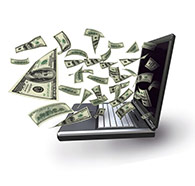НАВИГАЦИЯПОПУЛЯРНЫЕ СТАТЬИ
|
In 2015, inflation in Russia reached 12.9 percent — the highest recorded rate since 2008, Rosstat said. The Ministry of Economic Development forecasts that prices in Russia will grow 8.5 percent in 2016. The Central Bank expected that inflation would not exceed 7 percent - with the oil price at $35 per barrel. 03.03.2016 12:26 Russian Government Approves $9B Plan for Battered Economy The Russian government has approved a 684.8 billion ruble ($9.3 billion) anti-crisis plan as the country`s economy struggles with low oil prices and Western sanctions, and looks set to contract for a second consecutive year. Russian Prime Minister Dmitry Medvedev said Tuesday that he had signed off on the 120-point plan. According to a copy of the plan published online by the Russian government it is designed to “guarantee the stable social and economic development of the Russian Federation in 2016." The Russian economy shrank 3.7 percent in 2015 and rating agency Standard and Poor`s said last week it expected a second year of recession in 2016, with gross domestic product predicted to contract by 1.3 percent. The price of oil, Russia`s chief export and forex earner, collapsed from highs of $115 a barrel in mid-2014 to below $30 a barrel earlier this year. The anti-crisis plan approved by the government comes after weeks of wrangling and is substantially smaller than initial proposals. Russian Economic Development Minister Alexei Ulyukayev told a Feb. 18 cabinet meeting that the anti-crisis plan would cost 880 billion rubles ($11.9 billion). 01.03.2016 14:38 Citi: Risk of global recession rising The risk of the global economy falling into a recession is rising, as fundamentals remain poor, analysts at Citigroup said. "We are currently in a highly precarious environment for global growth and asset markets after two to three years of relative calm," Citigroup said, noting that global growth was "unusually weak" in the fourth quarter at around 2.0 percent on-year. "The most recent deterioration in the global outlook is due to a moderate worsening in the prospects for the advanced economies, a large increase in the uncertainty about the advanced economies` outlook (notably for the U. S.) and a tightening in financial conditions everywhere," the bank said. At the same time, fundamentals remain poor, including concerns about a structural and cyclical slowdown in China and its "unsustainable" currency regime, excessive leverage and rising regional risks, such as the risk the U. K. may exit the European Union, it said. 29.02.2016 12:54 Economy Ministry forecasts 1% rise in Ukraine`s GDP in H1 2016 The Ministry of Economic Development and Trade of Ukraine expects the revival of economic activity and the growth of gross domestic product (GDP) by 1% plus or minus 0.5 percentage points in the first half of 2016 after the fall by 10% in 2015 and 6.8% in 2014. "The revival... is due to both statistical effects, namely low base, and economic such as the resumption of work of enterprises in the east of the country, a growth in domestic demand due to the level of wages, the reduction of losses because of a lower load (social security tax) on payroll," the ministry said. Simultaneously the agency points out the continuing risks of falling prices in the key commodity markets of Ukrainian exports and restrictions imposed by the Russian Federation. The ministry said that data for the fourth quarter of 2015 confirm the restoration of the Ukrainian economy: according to tentative assessment of the State Statistics Service, the seasonally adjusted GDP grew by 1.5% compared to the previous quarter, while in the third quarter it grew by 0.5% compared to the second quarter. 28.02.2016 17:39 Bank of Russia Sees GDP Seen Down Almost 1% in First Quarter 2016 Russia`s economy is expected to contract by almost 1% in the first quarter, compared with the previous quarter on a seasonally adjusted basis, the central bank said Friday. Hit by a drop in prices for oil, Russia`s key export, as well as Western sanctions, the country`s economy is widely expected to shrink for the second year in a row in 2016. In annual terms, gross domestic product may fall by up to 2.5% in the first quarter, the central bank said. The Bank of Russia said the economic situation has improved somewhat this year. A year-on-year drop in retail sales in January was not as deep as in December, while the unemployment rate was steady. Exports and services are expected to support the economy in the first quarter. 26.02.2016 12:28 IMF: Russian Economy`s Contraction to Slow Down The contraction of Russia`s economy stemming from low oil prices and Western sanctions will slow down, International Monetary Fund (IMF) said in its Global Prospects and Policy Challenges report. "In Russia, the pace of contraction triggered by lower oil prices and sanctions is expected to slow," the report stated. The IMF noted that Russia needs "some spending adjustment" in 2016 to offset the negative effect of low oil prices. The report added that fiscal consolidation should continue over the subsequent medium term. The IMF also advised Moscow to carry out structural reforms to lift economic growth and ensure continued governance. "In Russia, structural reform should focus on enhancing governance and property right protection, lowering administrative barriers and regulation, increasing competition in domestic markets, and reinvigorating the privatization agenda as soon as market conditions permit," the report said. 25.02.2016 22:49 Russia`s national rating agency projects 1.7% GDP contraction for 2016 Analysts at Russia`s Analytical Credit Rating Agency (ACRA) project 1.7% GDP contraction for 2016, its Chief Executive Officer Ekaterina Trofimova said. "Short-term macroeconomic forecasts are still conflicting. According to ACRA analysts, amid current macroeconomic and geopolitical trends we expect GDP to contract by around 1.7% in 2016," she said. Russia`s budget for 2016 is based on $50 per barrel price for Urals crude oil, with budget revenues totaling 17.5% of GDP (13.738 trillion rubles, or $178.5 bln), expenditures at 20.5% of GDP (16 trillion rubles, or around $209 bln) and budget deficit at 3% of GDP (2.36 trillion rubles or $30.6 bln). The Finance Ministry officially projects 0.7% GDP growth for this year. 24.02.2016 11:20 Russian government considers changing country`s economy model The Russian government is considering the possibility to change the country`s economy model within its economic support plan, Deputy Prime Minister Arkady Dvorkovich said in an interview aired by the Rossiya-24 TV news channel on Saturday. "We`re reviewing our [economic] model within preparation of the anti-crisis plan," he said. "The policy, plans, management system should be reviewed so that they might be aimed at a different development model, not directly tied with commodities revenues. We should focus on tapping new niches on the global market using new technologies. The ruble`s low exchange rate favors it," he said. The price for Brent crude oil has fallen by 13% year-to-date, and by 70% since the highs of 2014. On February 18, the Russian government once again postponed development of the plan of economic support for 2016, with items requiring additional budget financing being discussed most of all. The measures to prop up Russian economy are worth a total of 880 bln rubles ($11.3 bln). Unlike the anti-crisis plan developed by the government in 2015 the plan of economic support mainly implies long-term efforts to drive economic growth instead of putting up capital in banks and enterprises. The necessity to form the plan was urged by Russia`s economic recession due to plunging oil prices. 20.02.2016 12:12 Russians tighten their belts for a great cause This week, Russia and Saudi Arabia agreed to freeze oil production at current levels in an attempt to halt the collapse in oil prices, which have pulled the Russian economy down with them. But the announcement did not give oil prices the bump that the Kremlin hoped for: the freeze is contingent on Iran and Iraq doing the same, which the former, fresh out of its sanctions prison, has very little incentive to do. And without oil prices rising, and doing so dramatically, there will be no end to Russia`s economic crisis. As oil prices more than quadrupled in the first decade of Vladimir Putin`s rule, his spending ticked up along with it, although there was no investment in the kind of structural changes that could have assured Russia`s long-term economic health and resilience. By August 2012, when the federal budget was pegged to oil at $100 a barrel, the ministry of economic development calculated that the country would be in crisis should oil fall to $80 per barrel. Today, that price would be the answer to Mr Putin`s prayers. So what happens now to the lavish social spending that the Kremlin has overpromised on? And what about the expensive military gambit in Syria? |
Цитата дняБольшинство людей начинают интересоваться акциями, когда все остальные интересуются. Время интересоваться — это когда никто другой не интересуется. Вы не можете купить что-либо популярное и выиграть от этого. |




 07.03.2016 01:17 China cuts 2016 growth target amid continued economy concerns China has cut its growth target for this year to a range of 6.5% to 7%, down from 7%, a further sign that the world`s second-largest economy is slowing. Premier Li Keqiang said in a speech at the opening of the National People`s Congress parliament, attended by 3,000 delegates, that among the “main development targets” for the nation was “GDP growth 6.5% to 7%”. The goal had been set at “about 7%” for 2015, but expansion came in at 6.9%, it`s lowest for a quarter of a century. China`s leaders have traditionally declared the GDP goal at an easily achieved level that was regularly exceeded, and even then the objective is usually approximated to provide room for positive spin just in case. Using a range, rather than a single figure, will widen the target even further. The downwards revision comes after factory output contracted in China during February. 05.03.2016 12:45 Russia`s Annual Consumer Inflation Slowed to 8.1% in February Russia`s annual consumer inflation slowed to 8.1% in February, data from the Federal Statistics Service showed Friday. February`s decline in the annual reading, from 9.8% in January, was expected by analysts as the pace of price growth slows due to the base effect. On a monthly basis prices went up by 0.6% in February after growing 1% in the preceding month. The annual inflation in Russia has fallen into single digits in February for the first time since December 2014.
07.03.2016 01:17 China cuts 2016 growth target amid continued economy concerns China has cut its growth target for this year to a range of 6.5% to 7%, down from 7%, a further sign that the world`s second-largest economy is slowing. Premier Li Keqiang said in a speech at the opening of the National People`s Congress parliament, attended by 3,000 delegates, that among the “main development targets” for the nation was “GDP growth 6.5% to 7%”. The goal had been set at “about 7%” for 2015, but expansion came in at 6.9%, it`s lowest for a quarter of a century. China`s leaders have traditionally declared the GDP goal at an easily achieved level that was regularly exceeded, and even then the objective is usually approximated to provide room for positive spin just in case. Using a range, rather than a single figure, will widen the target even further. The downwards revision comes after factory output contracted in China during February. 05.03.2016 12:45 Russia`s Annual Consumer Inflation Slowed to 8.1% in February Russia`s annual consumer inflation slowed to 8.1% in February, data from the Federal Statistics Service showed Friday. February`s decline in the annual reading, from 9.8% in January, was expected by analysts as the pace of price growth slows due to the base effect. On a monthly basis prices went up by 0.6% in February after growing 1% in the preceding month. The annual inflation in Russia has fallen into single digits in February for the first time since December 2014. Автор:
Автор: 
 Комментарии: 0
Комментарии: 0 Просмотров: 25
Просмотров: 25


